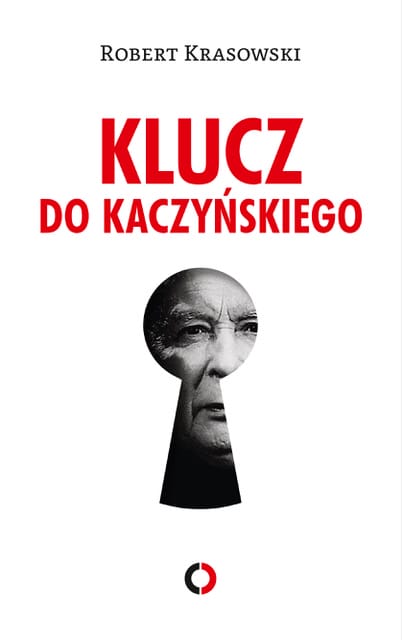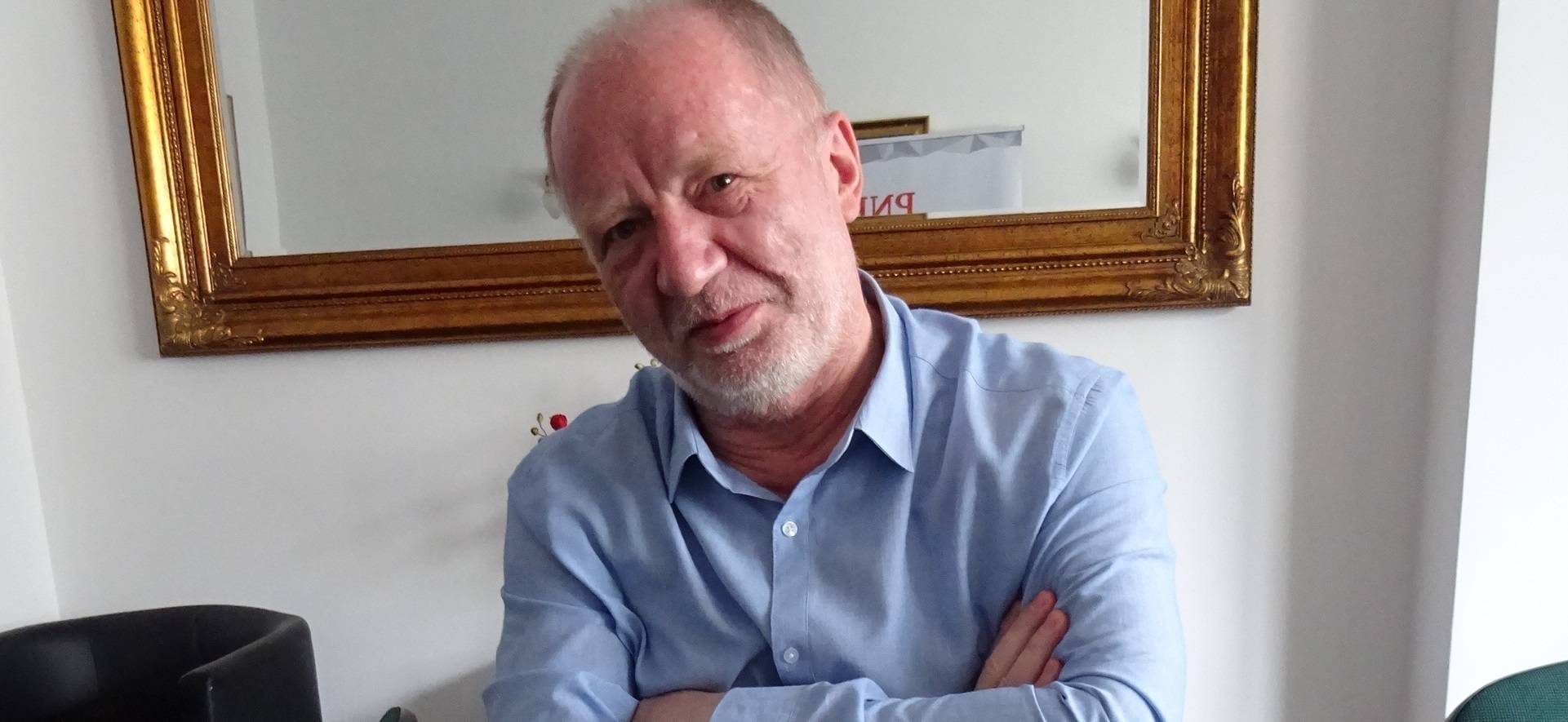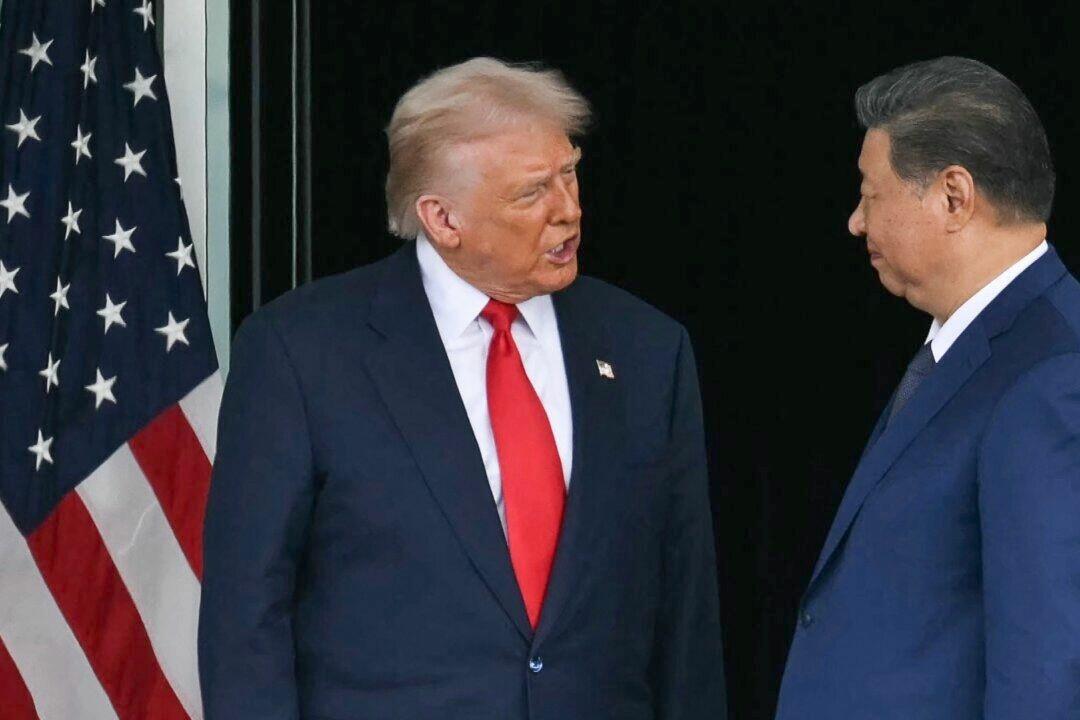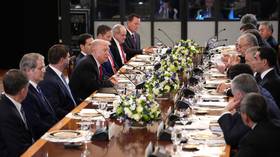 Robert Krasowski, “Key to Kaczyński”, Red and Black Wyd.
Robert Krasowski, “Key to Kaczyński”, Red and Black Wyd.All Robert Krasowski's books on Polish politics are well written, brilliant, full of courageous, provocative and intellectually fertilizing too. At the same time, the closer the reader begins to analyse the statements contained in them, the more they prove to be debatable, as does the author's accuracy of the diagnosis.
It's no different from Key to Kaczyński. On the 1 hand it is the most interesting book of the author from Kaczyński Time 2016, the past of the first regulation of the Law and Justice. On the another hand, full of superb diagnosis and places of actually revealing observation, the publication leaves much to be found. It presents a very incomplete image of both Kaczyński and his governments in the period 2015-23. The title key to Kaczyński, unfortunately, turns out to be a pick-me-up in many places, and the author omits a number of phenomena essential to realize what happened during the period of the second regulation of the Law and Justice, which does not suit him to explain Kaczyński's riddle.
Kaczyński is primarily Żoliborski intelligent – unfortunately
What are the thesis? Krasowski formulates 3 diagnoses about Kaczyński, which organize the full his speech. First, what has already fallen into Kaczyński Time – According to Krasowski, Kaczyński is more dependent on power in the state than on power in the party. More than a real ruler, he wants to be a magnate – possessing, unlike Radziwillów or Lubomirski in the 17th and 18th centuries – not large assets, private regiments and a network of noble customers, which is simply a prosperous, strong party, which gives a permanent influence on reality.
Therefore, Krasowski claims, the full policy of Kaczyński during the period 2015-23 was subordinate to his maintaining a lifelong power in the party. Kaczyński did not take power in the state, remained in Novogrodzka, president and prime ministers made people he never respected. If he entered the government, it was not to prosecute any state goals there, but to reconcile quarreling organization factions, sasinists with the Morawiecki party, people of the Prime Minister with the Ziobrists.
Compare, encourages readers Krasowski, Kaczyński and Orbán. The Prime Minister of Hungary took advantage of the extraordinary chance he had to gain the constitutional majority in the 2010 election and actually built a fresh strategy of power in his country, in which Fidesz' failure of power, even if theoretically possible, in practice is very hard to imagine. Kaczyński failed to make specified a systemic transformation, although he besides violated the rules and institutions of liberal democracy.
According to the author of the book, this was not due to the inability of the leader of the Law and Justice, but to the assumptions with which he came to rule. Although Kaczyński took over the full pool in 2015, although he renewed his mandate in the 2019-20 election, he was inactive reasoning about not converting the state, but utilizing it to feed the organization as much as possible. She would have gathered "stocks" for a time erstwhile she would yet lose power, so that her members, grateful to Kaczyński for the "great food" of political prosperity would never question his leadership in the party.
There was another thing behind Kaczyński's demolition of liberal institutions headed by constitutional justice: his dealings with liberal intelligence. Kaczyński, the second thesis of the book, is an absolutely intelligent politician. Formed by the Żoliborski intelligent surviving room, accepting it as the main mention point. The full Kaczyński policy after a year ’89 stems from the environmental aversion and envy in this environment, destroying the Kaczyński state not so much implements any consistent plan to transform liberal democracy into crypto-autocracy, which avenges liberal intelligence with which it has remained in conflict since the “war on top”.
It is so impossible to explain what happened in Poland after 2015, referring to comparisons with Western populism – Trump, Brexit, the emergence of the power of alternate for Germany or Marine Le Pen. According to Krasowski, the illness from 2015-23 is highly local, liable for it is the Polish intelligence and its defects.
It is intelligence, as we read in the book, that is liable for the insane scale of political polarization in Poland. This group, formed during the period of partitions, cannot think of Poland another than apocalyptic categories. He lives with professional adherence to the threat of the end of Poland or the end of democracy. Kaczyński, with his crazy diagnosis of the Germans and the Union seeking to liquidate the Polish state or the Smolensk bombing, repeats the cultural code of Polish intelligence, as did his liberal opponents, despairing in the last 8 years over the "end of democracy". In another words, as Krasowski claims, everything worst in Kaczyński as a politician comes from his intelligence.
Finally, this is the last thesis of the book, as an intelligent politician Kaczyński wants to be more a leader of opinion than a ruler. He is not fighting for real power, but he is racing Michnik in the fight for a government of souls. Therefore, in 2015-23 the leader of the PiS turned the state into a paper proclaiming his views. Ministers, alternatively of ruling, promoted views close to Kaczyński. The main mode of communication of power with public opinion, but besides global partners, became the language of press polemics.
Doesn't Kaczynski truly care about power?
All these 3 thesis are superb and interesting, but are they correct? This is surely the reflection that during the second regulation of the Law and Justice, the Polish state has turned into an ad-hoc pillar for right-wing publishing – the best examples are the activity of Prof. Piotr Gliński as Minister of Culture and Prof. Przemysław Czarnek as Minister of Education and Science. Gliński, alternatively of organizing the operating conditions of cultural industries in Poland, constantly defrauded liberal creative intelligence, went from office to polemics, including the Nobel lecture Olga Tokarczuk. From the position of his office, Czarnek attacked the technological achievements of the prominent Holocaust researcher, Prof. Barbara Engelking, threatening to limit the backing of the technological facility employing her.
Krasowski is besides right that from the full demolition of the institution by Kaczyński not a systemic revolution was born, but chaos and "great food" for PiS and appetizers. But is that adequate to say that Kaczyński is not curious in power? I have doubts.
How, then, can we explain all the actions taken between 2015 and 23 to maximize the chances of the Law and Justice organization winning the next election? A revision of the electoral code written to compression the maximum turnout from agrarian areas? engagement of the state in promotional actions besides addressed to smaller municipalities, statistically more frequently voting for the Law and Justice? Shifting the local elections to parliamentary - so that the mediocre consequence in local elections does not harm organization chances for a 3rd term. Or trying to block self-government autonomy by the Regional Chambers of Auditors Act, vetoed by president Duda.
How can I explain the madness of the postal elections that Krasowski practically doesn't mention in the book? On the 1 hand, it could be explained by utilizing Krasowski's also: Kaczyński initiated the full election dispute due to the fact that the government and the president began to deal besides well with opposition, while gaining any real power. Kaczyński had to turn over the table, initiate a full conflict with the opposition in order to regain power over the party. However, it is hard to seriously defend the thesis that beyond this organization context it was not a desperate effort to place its own man in the Presidential Palace in order to safe the power of his camp in the state.
Did the acquisition of TVP, the acquisition of local media by Orlen, a cut-off critical of media power from advertising from state-owned companies and the directing of their stream to these friendly powers, yet in Lex TVN – only about publishing and oppressing liberal intelligence, or about creating a strategy in which power can operate freely without free media control, which increases its chances of winning subsequent elections?
The war against courts was not only a war against liberal legal intelligence, but besides an effort to remove fuses, the control function of courts, to guarantee that politicians operate under the law. Yes, the Constitutional Court, which was cast by Przyłębska, Pawłowicz and Piotrowicz, yet besides frequently dealt only with publicism – for that was the case with the judgments "absorbing" the provisions of the European treaties which did not fit the government – but the actual liquidation of the control function of the Constitutional Tribunal was a very far-reaching political change which could be utilized for further, truly dangerous aspects of the transformation of the system.
I have the impression that Krasowski confuses 2 things: the desire for power and the real ability to usage it. As demonstrated by the years 2015-23 Kaczyński, having at least until 2020, more power than any another Polish politician after 1989 – more than Wałęsa in 1990-91, due to the fact that the Bielecki government had a weak democratic legitimacy, more than Miller in the first years of his rule, due to the fact that the leader of the SLD had to deal with the strong presidency of Kwasniewski – he could not usage it at all. He lacked the political imagination, the diagnosis with which the state included, were anachronistic, if not shot from the beginning, the personnel he picked him for defeat. This does not mean, however, that he did not want power, that he did not want power.
Finally, whatever Kaczyński's subjective motivation to trample on democratic-liberal institutions, their nonsubjective effects were destructive and the mobilisation of public opinion against what the Law and Justices did with courts or tried with media was full justified. Like exaggerated passwords wouldn't fall on her.
Not only Polish disease
I am not convinced by the author's diagnosis that what has been happening since 2015 has nothing to do with Western populism, and is only a consequence of defects of Polish intelligence.
First, Polish intelligence never spoke its language after 1989. The fresh reality of marketplace democracy has imported the languages developed in the Western public debate. The right-wing intelligence led by Kaczyński has been copying the language of the extremist currents of the American right for years. The banners under which the PiS has collected in fresh years a right-wing electorate to fight the “ LGBT ideology” or “gender ideology”, a war against elites that “disdain Polishness” – is simply a product licensed from Kentucky or Texas. Only in our country “the elite lie” imposing “the pedagogy of shame” replaced “liberals from the shores that despised actual America”.
For example, it is hard to accept the thesis that it is intelligence and its disadvantages – the tendency to apocalyptic thinking, the separation from real applicable cognition essential to conduct politics – are liable for the current Polish polarization. America is even more toxic polarized than Poland, though it has never had intelligence in the Polish sense of that term. besides in the American public debate, there are apocalyptic diagnoses, respecting the end of democracy not even in the case of Trump's second win, but even the first Bush Jr. or Nixon. After the British decided to leave the Union in 2016, British chattering classes They wrote about Brexit supporters very akin things to those that Polish liberal intelligence wrote about "five 100 pluses" who sold Polish democracy to Kaczyński.
The division between cities and the mediate class, voting for a broad liberal centre, and the populist right-wing supported by the smaller centres and folk layers that we have seen in Poland since 2018 at the latest, is not characteristic of us, but of many democracies, from Hungary to Britain to the United States.
PiS and appetizers are besides very consciously included in global networks of Trump-Populist right. Last week, the top of the United Right camp arrived at a Trump-Orbán event in Budapest.
One cannot ignore this global context by writing about PiS and Kaczyński. The intellectual heritage undoubtedly gave the Polish populist revolution its circumstantial shapes, but it does not explain the sources of the success of the Law and Justice and the wider sense of Kaczyński's triumphs.
Look outside the surviving room.
Krasowski writes at any point that Kaczyński, regardless of whether he fights the treaty, the European Commission or the liberal ideology of the modern west, is actually fighting Polish liberal intelligence all the time. In a sense, a akin thing can be said about Key to Kaczyński – The author, writing about the leader of PiS, actually writes about Polish intelligence, conducts his individual accounts and settlements with her. These passionate accounts give the book its publicist energy, drag us into the author's polemic passion, but at the same time distort Kaczyński's image, especially in the last 8 years.
At the end of the book comes another superb metaphor. Krasowski compares Poland to a train that after ’89 is heading in a mostly good direction. However, an anachronous intelligent surviving area attached itself to this train. Although her passengers are little and little knowing from the surrounding world, they have completely dominated the debate on the train. another carriages – this capital, the planet of work, real experts – stay silent.
Unfortunately, the author himself is in this surviving room. This can be seen, for example, after writing about Kaczyński in 2024, he focuses on his disputes with Michnik, Mazowieckie and Geremek, dating back to the early 1990s, very small space is devoted to the analysis of what Kaczyński has actually done in the last 8 years – the war on courts and media, with the European Commission, the post election, the judgement of the Constitutional Tribunal on abortion. He simply notes the function played by the redistribution on a major scale to keep the power of the Law and Justice.
In the book Kaczyński's conflict with Tuski – a politician, as Krasowski himself admits, "educated and read, but not intelligent", uninterested rivalry with Kaczyński for the government of souls in the surviving room. Why, then, in the key proposed by the author, completely irrational, excessive, obsessive hatred of Kaczyński to Tusk?
Krasowski besides fails to announcement precisely how the public sphere has changed the net and social media, deposing conventional intelligent media and authority. Returning to the metaphor with the train: the surviving area may inactive be convinced that it speaks on behalf of and to the full train, but passengers of the remaining carriages long ago switched off the radio node, during which the intelligents from the surviving area utilized to call them for years and moved to portal X.
Key to Kaczyński This is simply a book that allows to name and realize many things that took place in Poland during the period 2015-23. But she would benefit greatly if she looked beyond the borders of the intelligent surviving room, due to the fact that her interior environmental disputes are little and little explaining Polish politics.












![Karta Rodziny Mundurowej wkracza do Sejmu. Frysztak: nic nie stoi na przeszkodzie, by poszerzać grono uprawnionych [WYWIAD]](https://cdn.defence24.pl/2025/11/05/800x450px/0Yt7M1tzNYllfs9JACKlyaCkRybQn0D6JoxRbblo.voli.webp)





